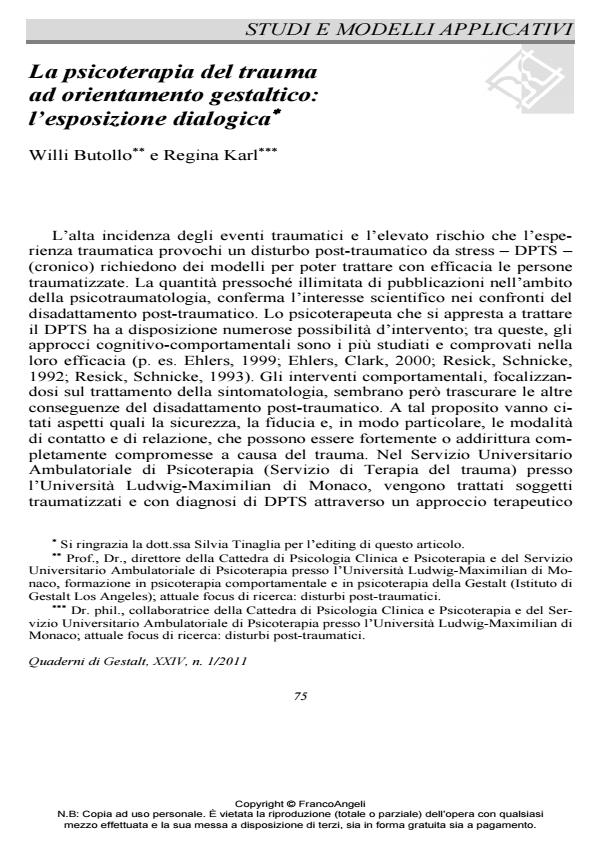Gestalt Trauma-therapy: the dialogical exposure
Journal title QUADERNI DI GESTALT
Author/s Willi Butollo, Regina Karl
Publishing Year 2011 Issue 2011/1
Language Italian Pages 11 P. 75-85 File size 1010 KB
DOI 10.3280/GEST2011-001007
DOI is like a bar code for intellectual property: to have more infomation
click here
Below, you can see the article first page
If you want to buy this article in PDF format, you can do it, following the instructions to buy download credits

FrancoAngeli is member of Publishers International Linking Association, Inc (PILA), a not-for-profit association which run the CrossRef service enabling links to and from online scholarly content.
Traumatic experiences not only generate the well known symptoms related to trauma, but also change the self and its processes. We have developed several different therapeutic concepts for treatment of post-traumatic stress disorders, which are based on different psychopathological models. Usually they neglect the importance of the intra-psychic dialogical ability, which is necessary to work through the relational disturbance and the contact interruptions due to trauma. What we present here is a process-oriented trauma psychotherapy which uses a few elements from behavior modification in the frame of reference of gestalt psychotherapy; it is based on a relational concept, it aims to identify and undo the person’s interruptions of contact. Thanks to this process, the person can experience continuity again his/her self responsability. "Dialogical exposure" refers to the dialogical nature of the self processes in any moment of psychotherapy work, it allows the person to be in touch and rely on different parts of her/him-self (traumatic, non-traumatic, pre-traumatic).
Keywords: Post-traumatic stress disorder, trauma, trauma-therapy, gestalt psychotherapy, dialogical exposure, processes of self
Willi Butollo, Regina Karl, La psicoterapia del trauma ad orientamento gestaltico: l’esposizione dialogica in "QUADERNI DI GESTALT" 1/2011, pp 75-85, DOI: 10.3280/GEST2011-001007